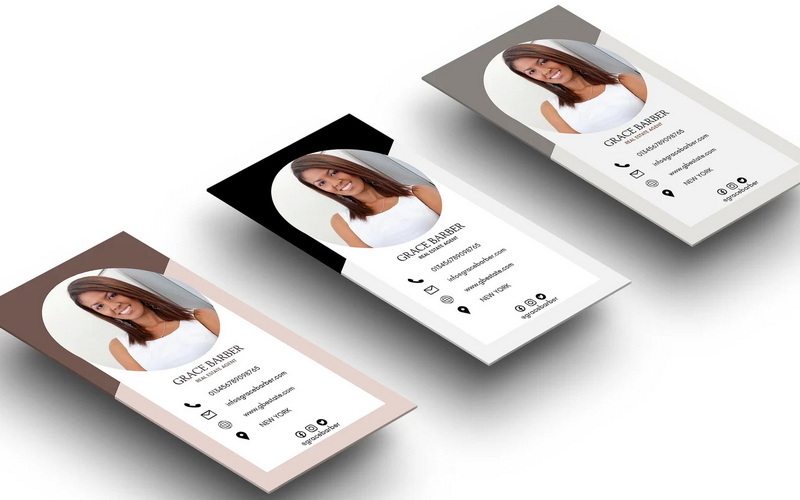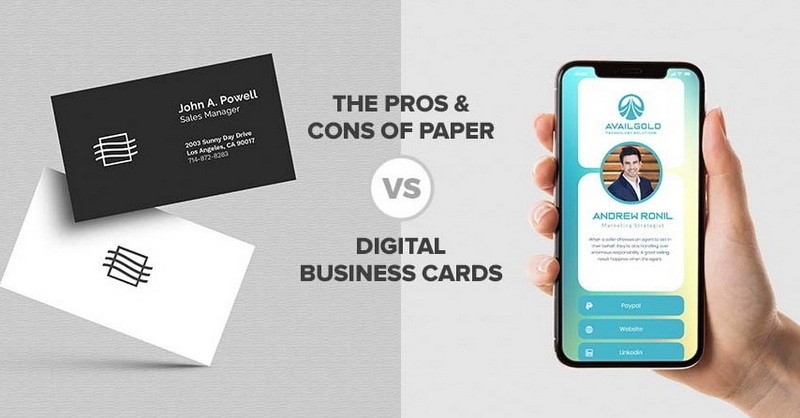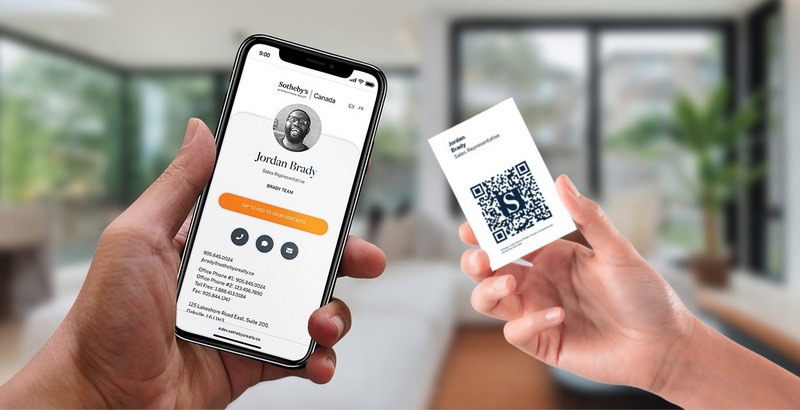Content Menu
● Introduction
● What is a Digital Business Card?
>> Benefits of Digital Business Cards
● How to Create a Digital Business Card
>> Step 1: Choose a Platform
>> Step 2: Sign Up and Log In
>> Step 3: Select a Template
>> Step 4: Add Personal Information
>> Step 5: Include Contact Information
>> Step 6: Add Social Media Links
>> Step 7: Customize the Design
>> Step 8: Enable Networking Features
>> Step 9: Save and Share Your Card
● Best Practices for Designing Your Digital Business Card
● Advanced Features of Digital Business Cards
>> Multimedia Integration
>> Analytics Tracking
>> NFC Technology
● Case Studies of Successful Digital Business Card Use
>> Case Study 1: The Freelancer's Advantage
>> Case Study 2: The Real Estate Agent's Edge
● Conclusion
● Frequently Asked Questions
>> 1. What platforms can I use to create a digital business card?
>> 2. How do I share my digital business card?
>> 3. Can I update my digital business card after creating it?
>> 4. Are there any costs associated with creating a digital business card?
>> 5. How do I ensure my digital business card looks good on mobile devices?
● Citations:
Introduction
In today's fast-paced digital world, networking has evolved significantly, with traditional paper business cards being replaced by digital alternatives. Digital business cards offer a more efficient, eco-friendly, and versatile way to share contact information. This article will guide you through the process of creating a digital business card, exploring various platforms and best practices to ensure your card stands out in a crowded marketplace.

What is a Digital Business Card?
A digital business card is an electronic version of a traditional business card that can be easily shared and accessed via smartphones or computers. Unlike paper cards, digital business cards can contain extensive information, including links to social media profiles, websites, and multimedia content. They are designed to be easily updated and shared, making them a modern solution for professional networking.
Benefits of Digital Business Cards
1. Cost-Effective: Digital cards eliminate printing costs associated with traditional cards. You can create and share as many cards as you need without incurring additional expenses.
2. Eco-Friendly: By reducing paper usage, digital cards contribute to environmental sustainability. This is particularly appealing to businesses and individuals who prioritize green practices.
3. Real-Time Updates: Information on digital cards can be updated instantly without the need for reprinting. This ensures that your contacts always have your most current information.
4. Convenient Sharing: Digital cards can be shared via email, text, or QR codes, making them accessible anytime, anywhere. This flexibility is especially useful during networking events or conferences.
5. Enhanced Contact Management: Many platforms offer features for organizing contacts and tracking interactions, allowing you to manage your networking efforts more effectively.
How to Create a Digital Business Card
Creating a digital business card is a straightforward process. Here's a step-by-step guide using various platforms.
Step 1: Choose a Platform
Select a platform that suits your needs. Some popular options include:
- Uniqode: Offers customizable templates and networking features that allow you to connect with others easily.
- HiHello: Allows for easy creation and sharing of digital cards with options for adding video introductions.
- Canva: Provides design flexibility with various templates and design tools that cater to both beginners and experienced designers.
- Linktree: While primarily known for linking multiple social media profiles, it can also serve as a simple digital business card.
- Blinq: A user-friendly app that allows you to create and share your digital card effortlessly.
Step 2: Sign Up and Log In
Create an account on your chosen platform. Most platforms will require basic information such as your name and email address. Some may offer additional features if you choose premium accounts.
Step 3: Select a Template
Choose from pre-designed templates or start from scratch. Ensure the design aligns with your personal or brand identity. Look for templates that are visually appealing yet professional.
Step 4: Add Personal Information
Fill in essential details such as:
- Name
- Job Title
- Company Name
- Profile Picture
- Logo (if applicable)
Step 5: Include Contact Information
Add various ways to contact you:
- Phone number
- Email address
- Website URL
- Physical address (if necessary)
Step 6: Add Social Media Links
Incorporate links to your social media profiles. This allows recipients to connect with you on multiple platforms. Consider including links to LinkedIn, Twitter, Instagram, or any other relevant platforms where you maintain a professional presence.

Step 7: Customize the Design
Tailor the look of your card by adjusting colors, fonts, and layouts to reflect your branding. Use colors that resonate with your brand identity while ensuring readability.
Step 8: Enable Networking Features
Many platforms allow you to add features like QR codes for easy sharing or analytics tools to track how often your card is viewed or saved. QR codes can be particularly useful at events where people can scan your code instead of manually entering contact details.
Step 9: Save and Share Your Card
Once you're satisfied with your design, save it and start sharing! You can send it via email or text message or share it during networking events using QR codes. Make sure to test the sharing options before distributing widely.
Best Practices for Designing Your Digital Business Card
To create an effective digital business card, consider the following best practices:
1. Keep It Simple: Avoid cluttering your card with too much information. Focus on key details that represent you professionally.
2. Mobile Optimization: Ensure that your card is easily viewable on mobile devices since many users will access it this way. Test how it appears on different smartphones.
3. Use High-Quality Images: If you include images or logos, ensure they are high-resolution for a professional appearance. Blurry images can detract from the professionalism of your card.
4. Test Functionality: Before sharing your card widely, test all links and features to ensure they work correctly. Broken links can frustrate potential contacts.
5. Regular Updates: Periodically review and update your information to keep it current. This includes changing job titles, contact numbers, or any other relevant details.
Advanced Features of Digital Business Cards
As technology continues to evolve, so do the features available in digital business cards. Here are some advanced options you might consider:
Multimedia Integration
Some platforms allow you to integrate multimedia elements into your digital business card:
- Video Introductions: Adding a short video introduction can make your card more engaging and personal.
- Audio Messages: Consider including an audio message that introduces yourself or explains what you do.
Analytics Tracking
Many digital business card platforms provide analytics tools that allow you to track how often your card is viewed or shared:
- View Counts: Understand how many people are engaging with your card.
- Click-through Rates: Monitor which links are being clicked most frequently.
NFC Technology
Near Field Communication (NFC) technology allows users to tap their phones against yours to receive your contact information instantly:
- NFC Cards: Some services provide physical NFC-enabled cards that link directly to your digital business card when tapped against another device.
Case Studies of Successful Digital Business Card Use
To illustrate the effectiveness of digital business cards, let's look at some case studies of professionals who have successfully utilized them in their networking efforts.
Case Study 1: The Freelancer's Advantage
Sarah is a freelance graphic designer who frequently attends industry conferences and networking events. By using HiHello's digital business card platform, she created an eye-catching design showcasing her portfolio links alongside her contact information.
At her last conference, Sarah shared her digital card via QR code during her presentations. Attendees could scan the code directly from their seats, allowing them instant access to her work samples and contact info—resulting in several new client inquiries within days.
Case Study 2: The Real Estate Agent's Edge
John is a real estate agent who often meets potential clients at open houses and community events. He created a dynamic digital business card using Uniqode that included links to virtual tours of his listings along with his personal branding elements.
By incorporating video walkthroughs into his card, John was able to engage potential buyers more effectively than traditional methods allowed—leading to increased interest in his properties and more successful sales.
Conclusion
Digital business cards are revolutionizing the way professionals network in the digital age. They offer numerous advantages over traditional paper cards, including cost-effectiveness, ease of sharing, real-time updates, and enhanced engagement through multimedia elements. By following the steps outlined above and adhering to best practices in design and functionality, you can create an impactful digital business card that enhances your professional presence.

Frequently Asked Questions
1. What platforms can I use to create a digital business card?
You can use platforms like Uniqode, HiHello, Canva, Linktree, or Blinq to create customizable digital business cards.
2. How do I share my digital business card?
You can share your digital business card via email, text message, or by using QR codes that link directly to your card.
3. Can I update my digital business card after creating it?
Yes! One of the key benefits of digital business cards is that you can update them in real-time without needing to reprint anything.
4. Are there any costs associated with creating a digital business card?
While many platforms offer free versions with basic features, some may charge for premium features or templates.
5. How do I ensure my digital business card looks good on mobile devices?
Design your card using responsive templates that adjust well on different screen sizes and test its appearance on various devices before sharing it widely.
Citations:
[1] https://www.uniqode.com/blog/digital-business-card-basics/how-to-create-a-digital-business-card
[2] https://www.uniqode.com/blog/digital-business-card-basics/benefits-of-digital-business-cards
[3] https://www.cardtapp.com/blog/the-ultimate-guide-to-digital-business-cards/
[4] https://www.hihello.com/blog/how-to-make-a-digital-business-card-on-a-computer
[5] https://www.youtube.com/watch?v=QNxjdEC0zDQ
[6] https://tapni.com/blogs/digital-business-cards/what-is-a-digital-business-card
[7] https://www.qrcodechimp.com/Best-Practices-Sharing-Receiving-Digital-Business-Cards/
[8] https://huggingface.co/datasets/svjack/ShareGPT-computer-en-zh-26k/viewer
[9] https://www.designhill.com/design-blog/the-pros-cons-of-paper-vs-digital-business-cards/
[10] https://www.forbes.com/councils/forbesbusinesscouncil/2024/06/06/a-quick-guide-to-nfc-business-cards/
[11] https://www.destinationcrm.com/Articles/Web-Exclusives/Viewpoints/5-Benefits-of-Digital-Business-Cards-157643.aspx
































